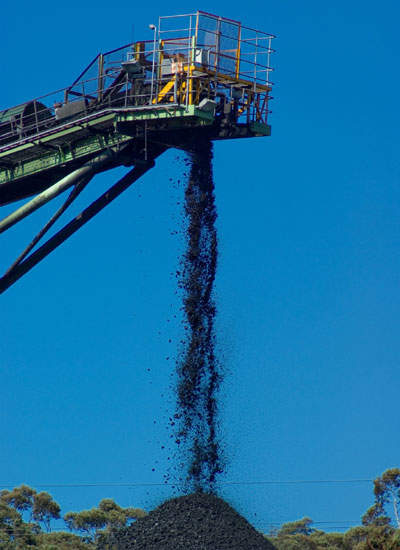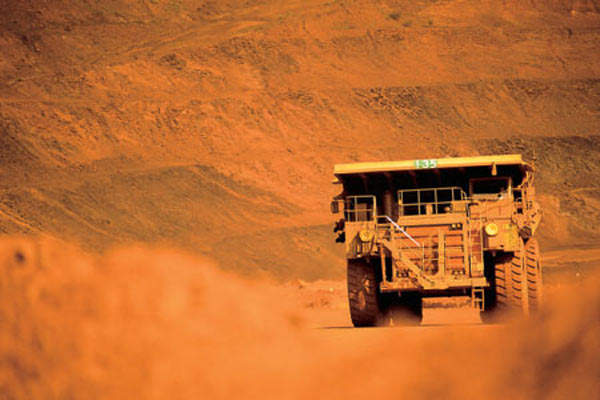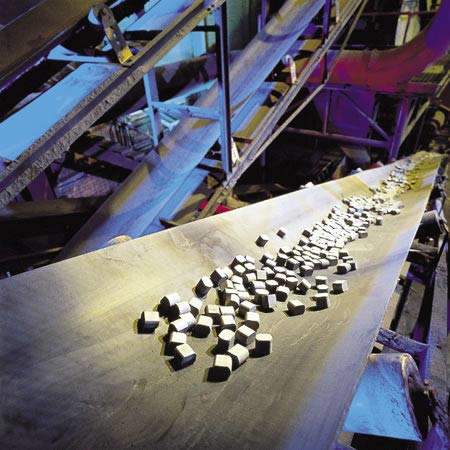The Pujada nickel mine is an open pit deposit located in the Philippines. It is situated in the municipalities of Mati, San Isidro and Governor Generoso in the province of Davao Oriental. The mine was owned by BHP Billiton in partnership with Queensland Nickel, Philippines.
The project is spread across 11,799ha and commercial production was expected to begin during 2009-10. However, in December 2009, BHP Billiton sold its 40% stake in the mine to its local partner AMCOR and withdrew from the project.The mine will create around 2,700 jobs.
Mineral production sharing agreements (MPSA) to the project were assigned in the name of Hopewell Mining, St Patrick Mining and Development, Hallmark Mining, PL Goodman Mining and Development and Blue Ridge Mineral. Other tenement holders of the mine include Oregon Mining and Development, Galactica Mining and Development and Mount Peak Mining and Development.
As of June 2009, all tenement holders in the project have been approved of the sharing agreements assignment by the Department of Environment and Natural Resources. All the seven MPSAs were later acquired by AMCOR that currently owns 100% of the project.
Project costs
The project was funded by BHP and required an estimated investment of $1,000m for completion. Operations at the project were predicted to generate $500m in gross sales.
The Philippine Government will potentially gain $10m in annual excise tax and $70m in income tax from the operations, excluding any incentives.
Legal issues with Amcor
In 2002, BHP collaborated with QNI (which later became a subsidiary of BHP Billiton) and partnered with Amcor in a joint venture agreement to mine Amcor properties in the Pujada region. BHP Billiton and Amcor then established Hallmark Mining Corporation to operate the joint venture project in Pujada.
Amcor decided to cancel the contract agreement in July 2007, alleging BHP and QNIP failed to comply with their contractual obligations towards it. In the following month, Amcor also filed a case against BHP in the Makati court, seeking for damages and injunction. Amcor’s main allegations were the continuing presence of BHP employees and officials on its property, and BHP and QNIP’s plans of mine banking the property until 2019 rather than mining the Pujada project by 2010, as agreed.
In May 2008 a regional trial court in Makati barred BHP from operating the Mati mining site, by issuing a preliminary injunction writ against the company.
The legal issues came to an end in May 2009 when the Court of Appeals allowed the mining companies to go ahead with their exploration. Furthermore, the complaint of Amcor claiming for damages and injunction was dismissed by the court for arbitration.
Environmental and social issues
Pujada Bay, the region in which the nickel mining project is located, is rich in rare and threatened species (such as sea cows and sea turtles) and the mining lease area borders an area protected under the Mount Hamiguitan Range and Wildlife Sanctuary Act. A seismic activity zone with extreme weather conditions, Pujada Bay is also a protected seascape and landscape according to Presidential Proclamation 431.
Certain communities living near the mining region are against the project. The Ecumenical Council for Corporate Responsibility alleged that BHP does not engage with all indigenous representatives as mandated by the 1997 Indigenous Peoples Rights Act.
In addition, the project also faces threats from the communist New People’s Army (NPA). Given the NPA’s threat to attack foreign mining companies, there has been increased use of protective paramilitaries near the site.
Mineralization and reserves
Geological composition of the site area is comprised of nickel-bearing laterites overlying peridotites of ophiolite. The mine contains about 1.3% nickel reserves amounting to 200 million MT, which are estimated to carry a gross value of $22.7bn.






